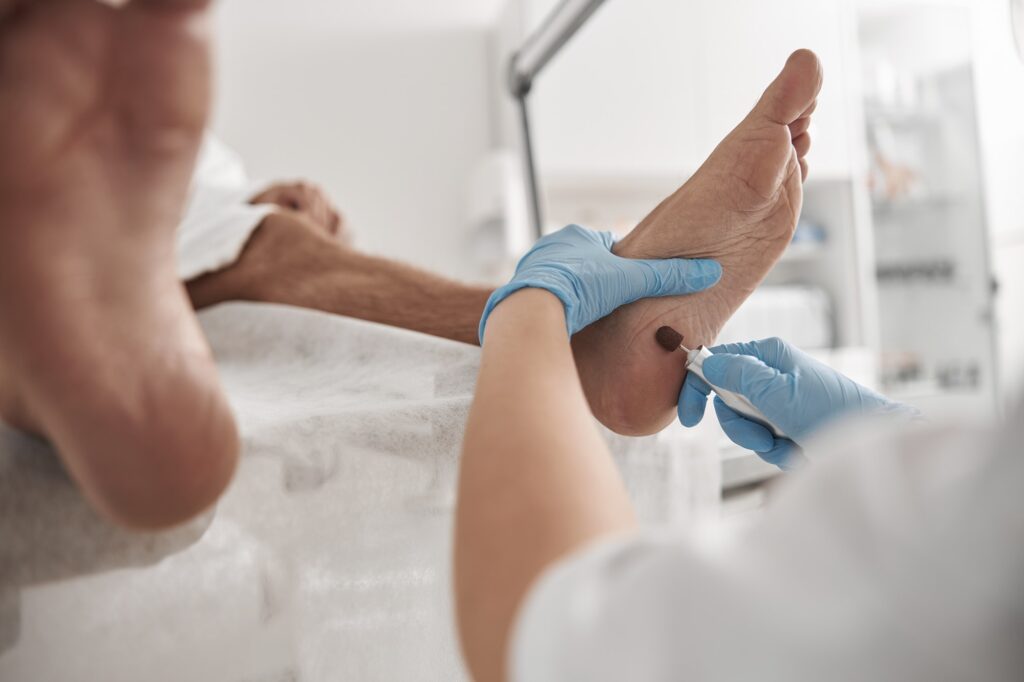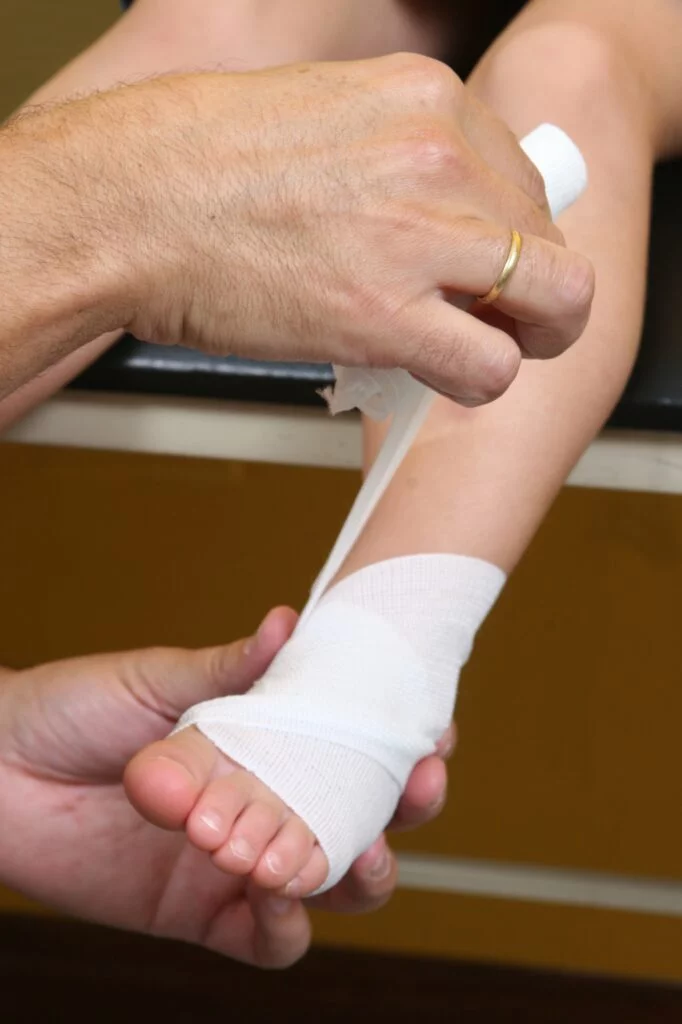Why is Diabetic Foot Care Important?
Diabetes is a chronic disease that causes your blood sugar levels to stay at consistently unhealthy levels. Left untreated, this can lead to a variety of health problems, particularly those that affect your lower extremities.
If you have diabetes, you’re more likely to develop slow-healing wounds, diabetic ulcers, peripheral neuropathy, and calluses. These conditions also increase your risk of infection and in turn, the need for amputation.
Fortunately, you can significantly lower your risk of more serious problems by monitoring your feet regularly, taking your prescription medications, exercising, and eating a healthy, well-balanced diet.
What Types of Diabetic Foot Care Do You Offer?
Our Providers offer a comprehensive suite of diabetic foot care treatments, including:
- Wound Care: Diabetes often damages the nerves in your feet, preventing you from feeling pain if you cut your foot or step on a foreign object. If a wound goes unnoticed and it’s combined with poor circulation, you’re more likely to develop an infection. When you have diabetes, your wounds don’t heal as quickly as they would for another, so it’s important you seek professional medical help. We offer safe and effective treatments for diabetic wounds, including antibiotics, enzyme treatments, diabetic shoes, casts, and foot braces.
- Treatment for Peripheral Neuropathy: Diabetic neuropathy affects 60-70% of people with diabetes. Neuropathy is the medical term for nerve damage, which is associated with symptoms such as tingling, numbness, and balance problems. Unfortunately, many people assume these symptoms are just a result of old age. If your feet or toes regularly bother you, it’s important to make an appointment with us. Combined with amputation prevention services, we help your limbs stay healthy and infection-free.
What if I Have Diabetes But Am Relatively Healthy?
Even if you haven’t developed neuropathy or a diabetic ulcer, you can still benefit from diabetic foot care. Following an exam and review of your medical history, we can provide you with tips and suggestions to help you detect problems early on and prevent further complications.
For example, inspecting your feet on a daily basis, washing your feet regularly, and wearing comfortable, well-fitting footwear can significantly lower your risk of infection or other complications.
If you’re living with diabetes, it’s crucial to take good care of your feet and toes. Our Providers have years of experience assisting patients with diabetic foot care. Make your appointment today by calling the office nearest you or clicking the online booking tool.



